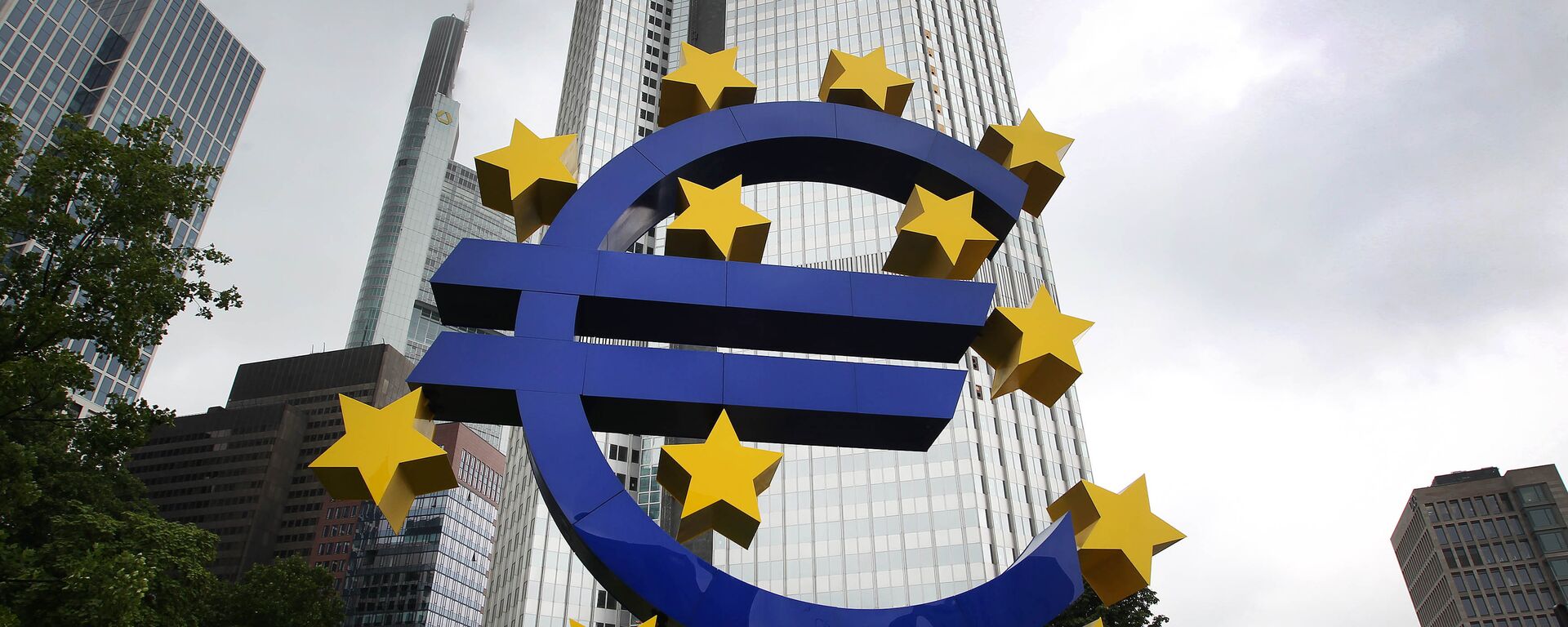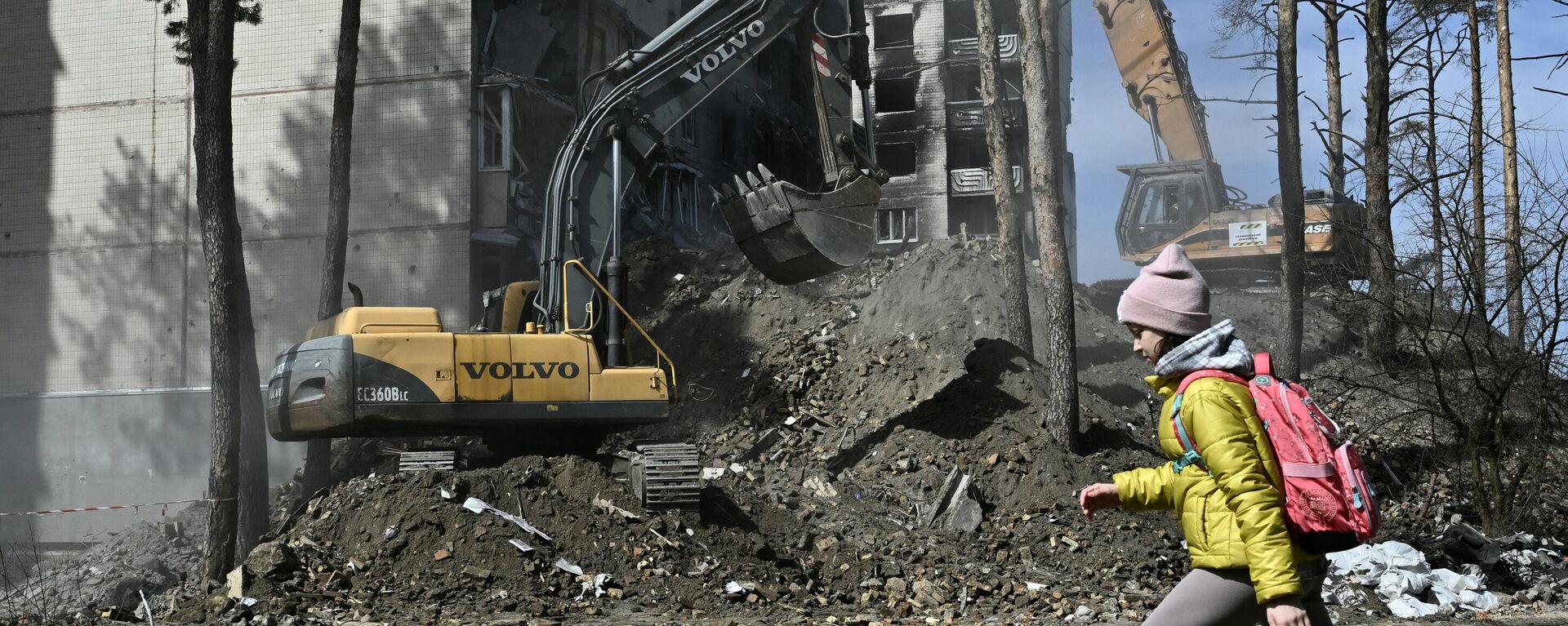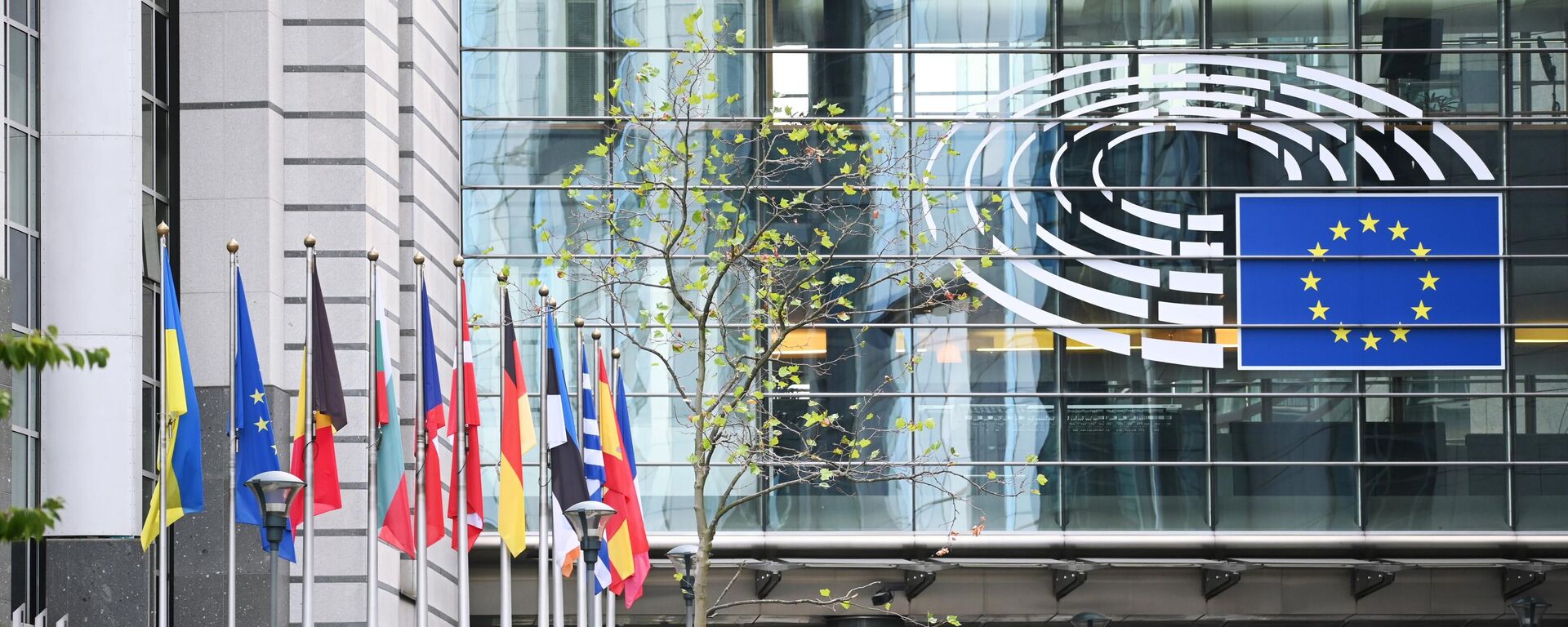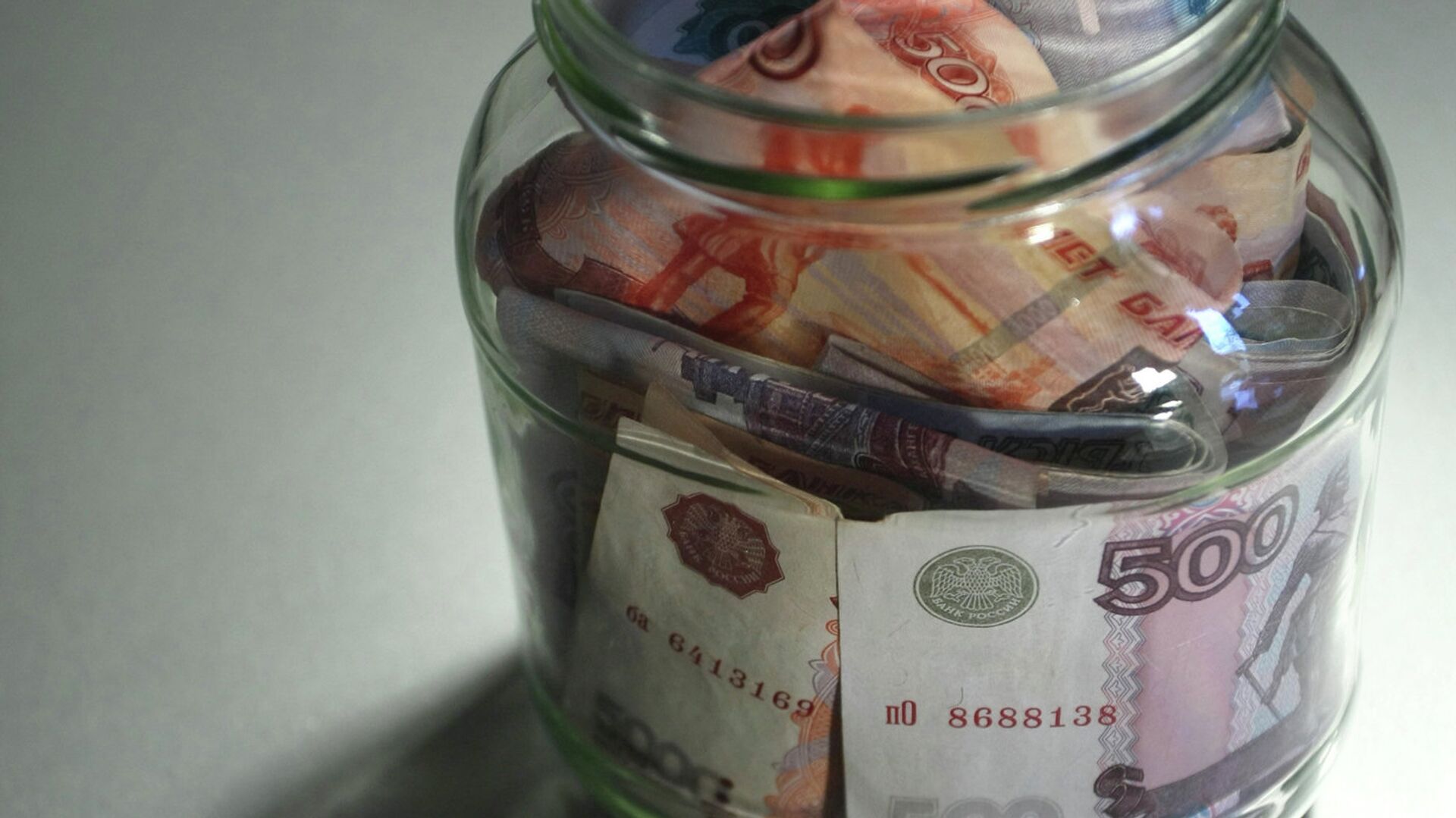https://sputnikglobe.com/20231216/g7-takes-another-step-toward-global-pariah-status-with-russian-asset-theft-scheme-1115625780.html
G7 Takes Another Step Toward Global Pariah Status With Russian Asset Theft Scheme
G7 Takes Another Step Toward Global Pariah Status With Russian Asset Theft Scheme
Sputnik International
Western countries froze a $300 billion chunk of Russia’s Central Bank reserves in 2022, and began brainstorming whether it would be possible to give the money to Ukraine without admitting that doing would constitute thievery. Independent observers have warned that such a step could tank trust in Western financial institutions.
2023-12-16T15:30+0000
2023-12-16T15:30+0000
2023-12-16T15:30+0000
economy
david cameron
muammar gaddafi
richard black
russia
ukraine
washington
european union (eu)
g7
central bank
https://cdn1.img.sputnikglobe.com/img/101593/78/1015937842_0:499:1426:1301_1920x0_80_0_0_99009bee51027db33df2e9d870db28e0.jpg
The Group of Seven countries have reportedly “moved closer” to proceeding with the illegal transfer of Russia’s “immobilized” sovereign assets to Ukraine.A US discussion paper circulating among bloc members reportedly argues that pilfering “some” of the frozen assets would be “consistent with international law,” allaying fears by America’s allies that moving against Russia may prompt other foreigners to withdraw multi-billion dollar holdings in G7 bloc nations.The aggressive push, said to be time-sensitive owing to the dual failure by Washington and Brussels this week to approve $116.4 billion in fresh assistance to Ukraine, comes as Western officials grow increasingly weary of putting new funds into what one EU official privately described as the Ukrainian “black hole.”A US official involved in discussions on the transfer of seized Russian assets to Kiev said the idea may be discussed at an upcoming G7 leaders meeting in February.Previous proposals, floated by EU members, focused on the idea of skimming interest off frozen Russian funds held in European banks, and sending those funds to Kiev. However, the European Central Bank warned late last month that utilizing dividends and interest from the frozen assets could lead to “reputational damage” to the euro and undermine its status as a “safe currency.”But with Kiev facing an increasingly precarious financial situation as Western aid runs dry, some Western officials believe the time to loot the Russian assets has come, even if G7 members are forced to act individually.“It’s going back to the question of: is it just up to Western citizens and treasures to pay for the war, or should the Kremlin also be on the hook,” said one Western official familiar with “live conversations” taking place on the issue.“Extraordinary times require extraordinary measures,” UK Foreign Secretary David Cameron told lawmakers this week, saying London could act in coordination with Washington on the matter if other G7 members falter. There won’t be any “chilling effect” on investment in Western countries, Cameron assured, saying the damage was already done when Russia’s assets were frozen in the first place.A ‘Rules-based International Order’?The consensus that sovereign central bank assets enjoy international legal immunity emerged in the 19th century. The principle was designed to create a semblance of order in the international financial and legal system, and to prevent adversaries from turning their political and military disputes to the realm of finance and thus sparking global economic crises.Western powers have violated the principle of sovereign immunity repeatedly in recent decades, seizing tens of billions of dollars in assets belonging to Iran in the aftermath of the 1979 Revolution, looting Libya’s sovereign wealth in the wake of NATO’s overthrow of Muammar Gaddafi in 2011, and targeting Venezuela in 2019 and 2020 amid a US-led plot to overthrow the Maduro government.But the seizure of assets belonging to Russia – the world’s sixth-largest economy in terms of PPP GDP, would constitute robbery on a new scale, further undermining the West’s status as a reliable financial partner in the eyes of the Global South’s largest economies. Last year, bank regulators in China – the world’s largest economy by PPP GDP, reportedly researched ways to save assets held in Western banks after witnessing what Western countries did to Russia.Veteran international criminal and human rights lawyer Christopher C Black told Sputnik earlier this year that legally speaking, the transfer of seized Russian funds to Ukraine would not only constitute “theft twice over,” but an “act of war – since a nation supplying financial support to another nation to carry on a war can be considered under international law as a party to the war.”In addition, Black said, the scheme would demonstrate to countries the world over that “no one is protected” from the whims of Western officials. On top of that, Black believes Russia would inevitably “retaliate in kind if possible.”“So long as nations continue to deposits their assets, gold or money, bonds, etc. in EU or other Western banks, they will face the real threat of having those assets seized whenever the West decides it is in their interests to do so,” the lawyer said.The total value of seized Russian assets trapped in Western banks is unclear, with officials initially reporting that up to $300+ billion was trapped, but Washington-based financial experts later estimating that the actual amount was closer to $80-$100 billion, and US business media reporting earlier this year that only about $36.5 billion had actually been found by the EU to date.
https://sputnikglobe.com/20231129/using-frozen-russian-assets-to-fund-ukraine-threatens-euros-reputation---ecb-1115278704.html
https://sputnikglobe.com/20231216/ukraine-on-brink-of-humanitarian-collapse-authorities-admit-1115617784.html
https://sputnikglobe.com/20231211/global-gold-stockpiling-continues-as-prices-hit-record-highs---report-1115523773.html
https://sputnikglobe.com/20231212/taxable-profit-from-frozen-russian-assets-estimated-at-over-16bln-in-4-years-reports-1115542502.html
russia
ukraine
washington
Sputnik International
feedback@sputniknews.com
+74956456601
MIA „Rossiya Segodnya“
2023
News
en_EN
Sputnik International
feedback@sputniknews.com
+74956456601
MIA „Rossiya Segodnya“
Sputnik International
feedback@sputniknews.com
+74956456601
MIA „Rossiya Segodnya“
why are russian assets frozen in western banks, what happened to frozen russian assets, frozen russian assets, who owns russian assets
why are russian assets frozen in western banks, what happened to frozen russian assets, frozen russian assets, who owns russian assets
G7 Takes Another Step Toward Global Pariah Status With Russian Asset Theft Scheme
Western countries froze a $300 billion chunk of Russia’s Central Bank reserves in 2022, and began brainstorming whether it would be possible to give the money to Ukraine without admitting that doing would constitute thievery. Independent observers have warned that such a step could tank trust in Western financial institutions.
The Group of Seven countries have reportedly “moved closer” to proceeding with the illegal transfer of Russia’s “immobilized” sovereign assets to Ukraine.
A US discussion paper circulating among bloc members reportedly argues that pilfering “some” of the frozen assets would be “consistent with international law,” allaying fears by America’s allies that moving against Russia may prompt other foreigners to withdraw multi-billion dollar holdings in G7 bloc nations.
“G7 members and other specially affected states could seize Russian sovereign assets as a countermeasure to induce Russia to end its aggression,” the paper,
seen by a leading British business media outlet, indicated.
The aggressive push, said to be time-sensitive owing to the dual failure by Washington and Brussels this week to approve
$116.4 billion in fresh assistance to Ukraine, comes as Western officials grow increasingly weary of putting new funds into what one EU official privately described as the Ukrainian
“black hole.”A US official involved in discussions on the transfer of seized Russian assets to Kiev said the idea may be discussed at an upcoming G7 leaders meeting in February.
Previous proposals, floated by EU members, focused on the idea of skimming interest off frozen Russian funds held in European banks, and sending those funds to Kiev. However, the European Central Bank warned late last month that utilizing dividends and interest from the frozen assets could lead to
“reputational damage” to the euro and undermine its status as a “safe currency.”

29 November 2023, 11:09 GMT
But with Kiev facing an increasingly precarious financial situation as Western aid runs dry, some Western officials believe the time to loot the Russian assets has come, even if G7 members are forced to act individually.
“It’s going back to the question of: is it just up to Western citizens and treasures to pay for the war, or should the Kremlin also be on the hook,” said one Western official familiar with “live conversations” taking place on the issue.
“We need to find a way to get cash to Ukraine, in whatever form. And more and more countries are pointing at the assets and wondering why they are still sitting there,” an anonymous EU diplomat said.
“Extraordinary times require extraordinary measures,” UK Foreign Secretary David Cameron told lawmakers this week, saying London could act in coordination with Washington on the matter if other G7 members falter. There won’t be any “chilling effect” on investment in Western countries, Cameron assured, saying the damage was already done when Russia’s assets were frozen in the first place.

16 December 2023, 07:58 GMT
A ‘Rules-based International Order’?
The consensus that sovereign central bank assets enjoy international legal immunity emerged in the 19th century. The principle was designed to create a semblance of order in the international financial and legal system, and to prevent adversaries from turning their political and military disputes to the realm of finance and thus sparking global economic crises.
Western powers have violated the principle of sovereign immunity repeatedly in recent decades, seizing tens of billions of dollars in assets belonging to Iran in the aftermath of the 1979 Revolution, looting Libya’s sovereign wealth in the wake of NATO’s overthrow of Muammar Gaddafi in 2011, and targeting Venezuela in 2019 and 2020 amid a US-led plot to overthrow the Maduro government.
But the seizure of assets belonging to Russia – the world’s sixth-largest economy in terms of PPP GDP, would constitute robbery on a new scale, further undermining the West’s status as a reliable financial partner in the eyes of the Global South’s largest economies. Last year, bank regulators in China – the world’s largest economy by PPP GDP, reportedly researched ways to save assets held in Western banks after witnessing what Western countries did to Russia.

11 December 2023, 17:54 GMT
Veteran international criminal and human rights lawyer Christopher C Black told Sputnik earlier this year that legally speaking, the transfer of seized Russian funds to Ukraine would
not only constitute “theft twice over,” but an “act of war – since a nation supplying financial support to another nation to carry on a war can be considered under international law as a party to the war.”
In addition, Black said, the scheme would demonstrate to countries the world over that “no one is protected” from the whims of Western officials. On top of that, Black believes Russia would inevitably “retaliate in kind if possible.”
“So long as nations continue to deposits their assets, gold or money, bonds, etc. in EU or other Western banks, they will face the real threat of having those assets seized whenever the West decides it is in their interests to do so,” the lawyer said.
The total value of seized Russian assets trapped in Western banks is unclear, with officials initially reporting that up to
$300+ billion was trapped, but Washington-based financial experts later estimating that the actual amount was
closer to $80-$100 billion, and US business media reporting earlier this year that only about
$36.5 billion had actually been found by the EU to date.

12 December 2023, 17:21 GMT






